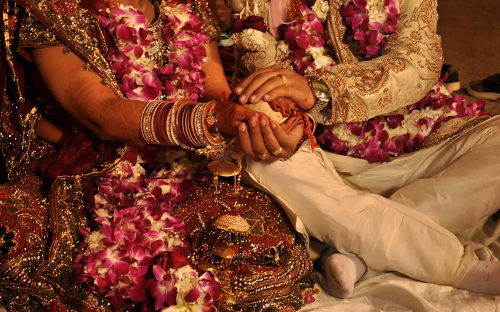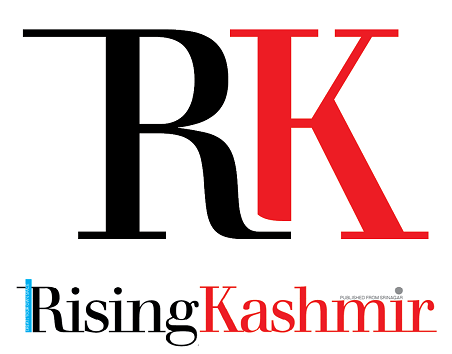In times of women’s empowerment and the emerging sheroes, an old yet new system of surname changing for women after marriage is picking trend explaining another system of ‘identity oppression’ for the females of this country.
Zareena Akhtar (name changed) met an old school friend Qurat Yasin(name changed), now a housewife, in a busy market in the by-lanes of Srinagar city and in exchange, she came to know that Quart Yasin has turned into Qurat Farooq. Farooq is the name of Qurat’s husband and Yasin her father. To utter shock and curiosity, Zareena asked the reason which Qurat replied, it is predominant in their family, and she had to follow the decade-old practice.
Zareena didn’t stop there; she tried to pursue further and asked about her willingness to accept the new identity. Qurat responded in a submission tone, “You know it, we women have to submit before the husband’s family and agree to the condition”. Qurat didn’t just submit the surname. With this, her own identity is gone. She is no longer identified by her father’s surname but by her Husband’s first name.
This conversation between the two friends explains the deep malaise that society has against women. Identity which is key to an individual and reflects their own personality is claimed by someone after the wedding and why, because she is a woman who lefts her parent’s house to settle with a new man and form a family. As if this was not enough, her own identity is being crushed by the dark system of societal frontals.
The question is where is this malaise coming from? Is identity prominent only for males?
Between males and females, it is not a matter of division of status but the division of labour. If someone suppresses the identity of the other, it will be the highest level of moral and ethical infidelity.
At times when we promote and celebrate women’s empowerment and claim to be an advanced and liberal society, women still don’t get what is due to them. The best epitome is replacing surnames for females after marriage.
We are identified by name. It becomes convenient to point out an individual on such a crowded planet by name. The name identifies anyone. Name is an invisible identification of our faces. Names define who we are and how we are addressed among the masses. Among others, it too becomes a challenge for the women after the wedding. First, they are asked to change their surnames and if the wedding doesn’t work, she goes back to her parent’s name. It simply means that her identity is based on her relationship with men. In the current era of women’s empowerment and advancement, women can’t hold their name. She requires another hand to go with the rhythm.
As the definition “Surname is a hereditary name common to all members of the family, a distinct from a given name”. Hence from celebrating the victory of women, claiming to be fighting for their rights, and having debates and seminars, instead, she is confined to the limits through the ‘identity oppression’.
Can we do the same for men? Can we ask the men to use the woman’s surname after the wedding? Can we ask men to give up their identity for the sake of family and relationships? No, we cannot, neither we will ask the men to do it, nor will men ever ponder on this thought.
Now, the need of the hour is to get to know why this trend is in practice or why people want to make women change their surnames. It may be believed that marriage is a tie between two persons but isn’t it enough that two people tied a beautiful knot, live together, and create a shared future, yet one is asked to surrender her identity to keep the relationship intact and other is free to remain what he was.
For ages, it has been a practice in different religions to change the surname of women after marriage. Women were at the point of oppression not only for surrendering their identity but also for holding the free right over their property. Though most of it changed after the introduction of Islam around 1400 years ago. Islam relieved women of their burden, gives them real empowerment and strengthen their right over their identity and property. She had been considered superior for her own decision which as it has been done later in 1848 in the USA in the form of a legal Act.
Does Law support any such transition?
According to the married women Act, there is no legal provision that deals with the alteration of the surname of women after marriage. Similarly, the married women’s property act, of 1874 quotes “married women may not maintain a suit in her own name for the recovery of property of any description which, by force of the Indian succession act, 1865, (10 of 1865) or of this act, is her separate property; and she shall have in her own name, the same remedies, both civil and criminal against all persons, for the protection and insecurity of such property as if she were unmarried and she shall be liable to such suits, process and orders in respect of such property as she would be liable to if she were unmarried”.
When the law doesn’t even support such an alteration, it clearly reflects that it is the societal male hegemony that forces a female to give up her identity post-marriage.
Let’s be clear on this, shouting over the rooftop about women’s rights and women’s empowerment doesn’t work, when on the ground people behave equally opposite. It is the time to act and allow women to be divas of their own identities and deciders of their own fate. Let people know her as she was born and not as who she is married to.
(Author is pursuing PhD in English Literature from RIMT University Chandigarh. She hails from Rafiabad Baramulla)








